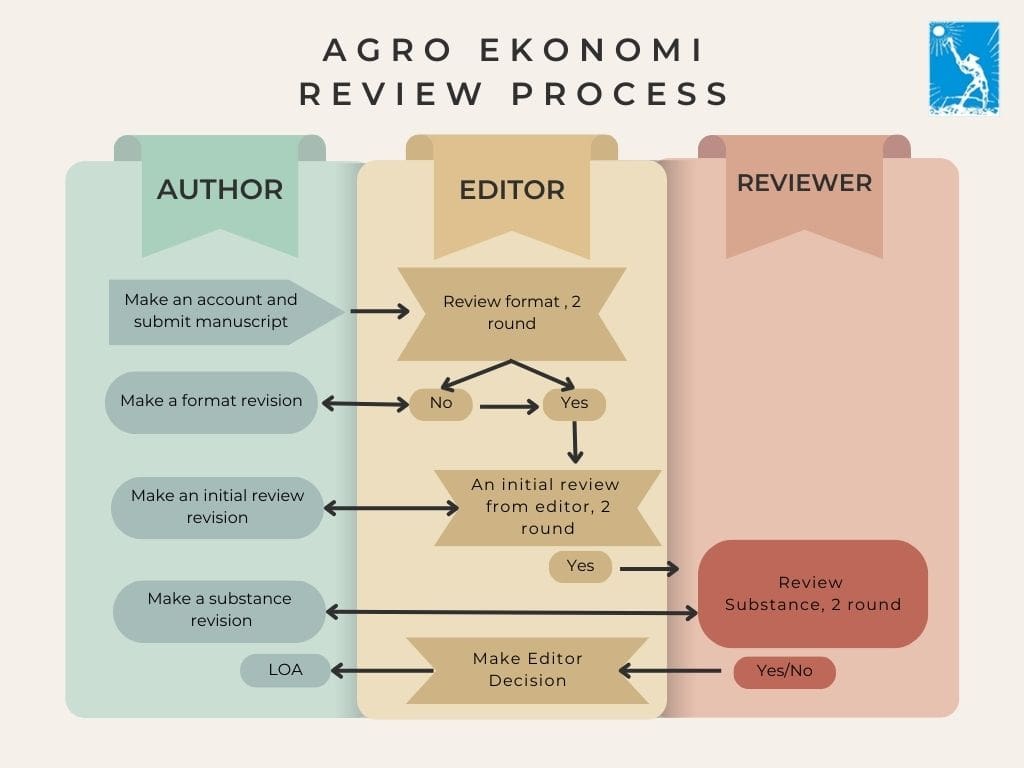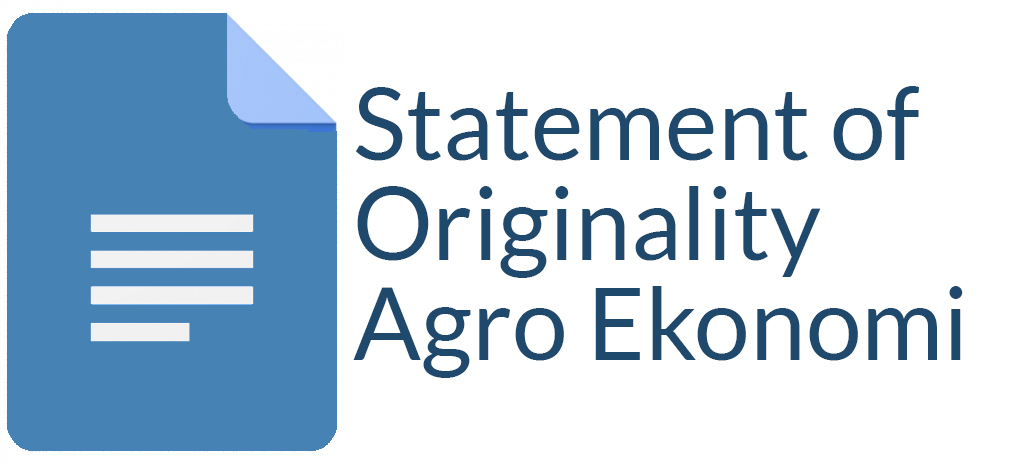The Rationality Of Economic Forecasts: The Cases Of Rubber, Oil Palm, Forestry And Mining Sector
Muzafar Shah Habibullah(1*)
(1) Department of Economics University Putra Malaysia
(*) Corresponding Author
Abstract
Business has always recognised the need for a view of the future and has used explicit forecasts in the design and execution of their economic andJor business policies. For example, a firm trying to decide upon its investment programme will have to take into account not only the current known set of circumstances but also the unknown economic and business conditions in the future. The firm has to form a view about the future, such as the likely sales, costs, prices, competitors' reactions, labour requirements, government regulations and so on. These views about the future values of economic variables are frequently referred to as 'expectations', that is, what the firm expects to happen in the future.
In recent years the performances of many microeconomics and macroeconomics series have been erratic. For example, rate of inflation, price of crude oil, prices of primary commodities, rate of interest and other pertinent economic variables have been fluctuating widely and have caused concern among the public, politicians, economists and also the businessmen. According to Mayes (l 981), with such non-uniformity of economic variables observed in the last two decades, the role of expectations has become more relevant in the economic agents' decision making process. Mayes (1981) further states that under the present conditions it has become more important to consider what expectations actually are and how they are formed.
The value of economic forecasts of certain macroeconomic variables can be derived from several methods. The three main methods for deriving economic forecasts are (i) time series, (ii) econometric models, and (iii) survey of intentions of concerned agents and organizations. Time series
analysis and econometric modeling are the two most widely used methods in economic forecasting, but Holden and Peel (1983) had noted their drawbacks. Recently, economists have turned their direction of interest in evaluating the rationality of economic forecasts from surveys of market participants. The empirical literature on the direct tests of the rational expectations hypothesis is vast and growing. Holden et al. (1985), Lovell (1986), Wallis (1989), Maddala (1991) and Pesaran (1991) had reviewed some of these studies. The aim was to determine whether survey data on economic forecasts are accurate in the Muth's (1961) sense, that is, whether participating economic agents used all available information at the time forecasts are made. in other words, the rational expectations hypothesis of the economic forecast was put to test. In general, the empirical studies do not support the rational expectations hypothesis.
Most of the studies carried out to evaluate the rationality of business firms' forecasts of economic variables were conducted on developed nations. Madsen (1993) studies the formation of output expectations in manufacturing industry in Japan, Denmark, Finland, France, Germany, Netherlands, Norway, Sweden and the United Kingdom. He found that the rational expectations hypothesis was weakly rejected. Williams (1988) and Chazelas (1988) found investment forecasts biased predictors of the actual investment value for firms in the United Kingdom and France. Meganck et a!. (1988) have concluded that investment forecasts of the manufacturing firm in Belgium were unbiased predictors of the actual values. However. Daub (1982) failed to find any rationality of the Canadian capital investment intention survey data. On the other hand. a study by Leonard (1982) on employment forecasts by the United States services sectors found that the forecasts were biased and the rationality of these employment forecasts rejected.
The purpose of this paper is to present some empirical evidence on the rationality of agricultural firm managers' expectations using survey data. This study is important because it adds to the current literature on the testing of rationality of survey data, in particular, it provides empirical evidence from the perspective of a developing country. As for the country under study, the finding of the study could establish whether the forecasts documented by such survey are accurate or not; and if not, ways to produce more accurate forecasts must be found. 'Rationality' in this paper means that managers in agricultural firms have unbiased expectations and efficiently utilised available information at the time the forecasts are made.
Full Text:
PDFReferences
A.M.Fischer, Unit Roots and Survey Data., 1989
B.M.Friedman, . Survey Evidence on the Rationality of Interest Rate Expectations, 1980
B.Meganck, Ph. Hainaut, E. Verregdt, J. Palate, Vanhaelen, J.J. ., Investment Behaviour in the Belgian Manufacturing Industry According to the Surveys of the National Bank. In K.H. Oppenlander and G. Poser (eds.), 1988
D.E.Runkle, Are Fan-owing Intentions Rational Forecasts, 1991
D.G.Mayes, The Controversy over Rational expectations, 1981
D.J.Mullineaux, On Testing for Rationality: Another Look at the Livingston Price Expectations Data, 1978
Department of Statistics., Business Expectations Survey of Limited Companies, various issues., 0000
G.S.Maddala, Econometrics., 1977
G.S.Maddala, Survey Data on Expectations: What Have We Learnt? In M. Nerlove (ed.). Issues in Contemporary Econometrics: Macroeconomics and Econometrics, 1991
G.W.Schwert, Effects of Model Specification Tests for Unit Root in Macroeconomic Data., 1987
H.Theil, Applied Economic Forecasting, 1966
J.A.Carlson, A Study of Price Forecasts, 1977
J.B.Madsen, The Formation of Production Expectations in Manufacturing Industry for Nine Industrialized Countries., 1993
J.F.Muth, Rational Expectation and the Theory of Price Movements., 1961
J.G.MacKinnon, Critical Values for Cointegration Tests., 1991
J.S. Leonard, Wage Expectations in the Labor Market: Survey Evidence on Rationality, 1982
K.F.Wallis, Macroeconomic Forecasting: A Survey, 1989
K.F.Zimmermann, On Rationality of Business Expectations: A Micro Analysis of Qualitative Responses, 1986
K.Holden, D.A. Peel , J.L. Thompson., Expectations: Theory and Evidence., 1985
K.Holden, D.A.Peel., Forecasts and Expectations: Some Evidence for the U.K., 1983
M. Chazelas, The Formation of Investment Plans According to the Bank of France Annual Survey: A Study on Individual Data, 1988
M.C.Lovell, Tests of the Rational Expectations Hypothesis, 1986
M.Daub, The Nature of Expectations Formation: A Canadian Capital Investment intentions Survey. In H. Laumer and M. Ziegler (eds.)., 1982
M.H.Pesaran, Expectations. in Economics. In D. Greenaway, M. Bleaney and I. Stewart (eds.). Companion to Contemporary Economic Thought, 1991
M.Keane, D. Runkle., Testing the Rationality of Price Forecasts: New Evidence from Panel Data, 1990
P.L.Coiling, S.H. Irwin., The Reaction of Live Hog Futures Prices to USDA 'Hogs and Pigs Reports, 1990
R.FEngle, B.S. Yoo., Forecasting and Testing in Cointegrated Systems., 1987
R.Williams, Surveys of Actual and Intended Investment in the U.K, 1988
Article Metrics
Refbacks
- There are currently no refbacks.
Copyright (c) 2016 Agro Ekonomi

This work is licensed under a Creative Commons Attribution-ShareAlike 4.0 International License.
View My Stats











